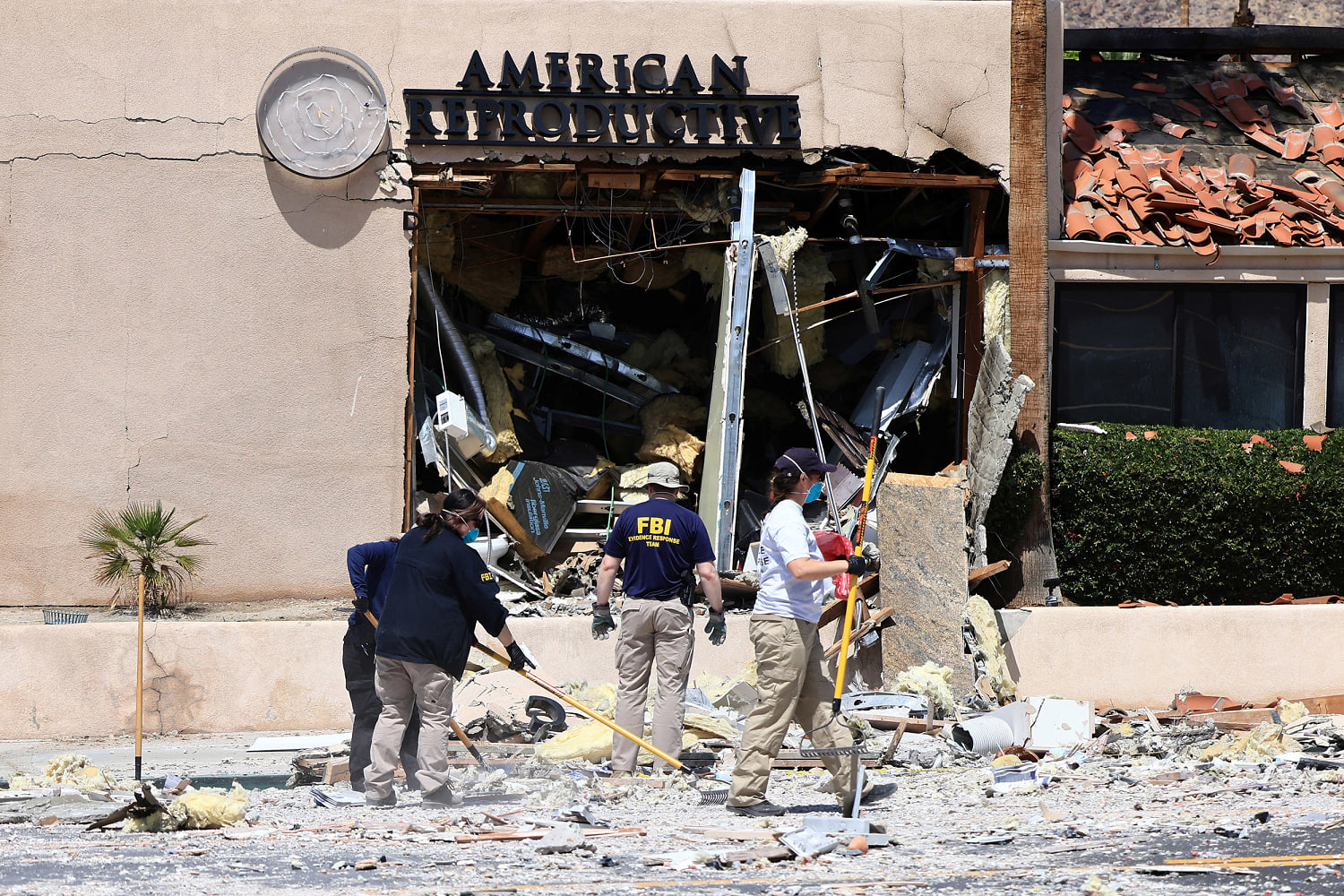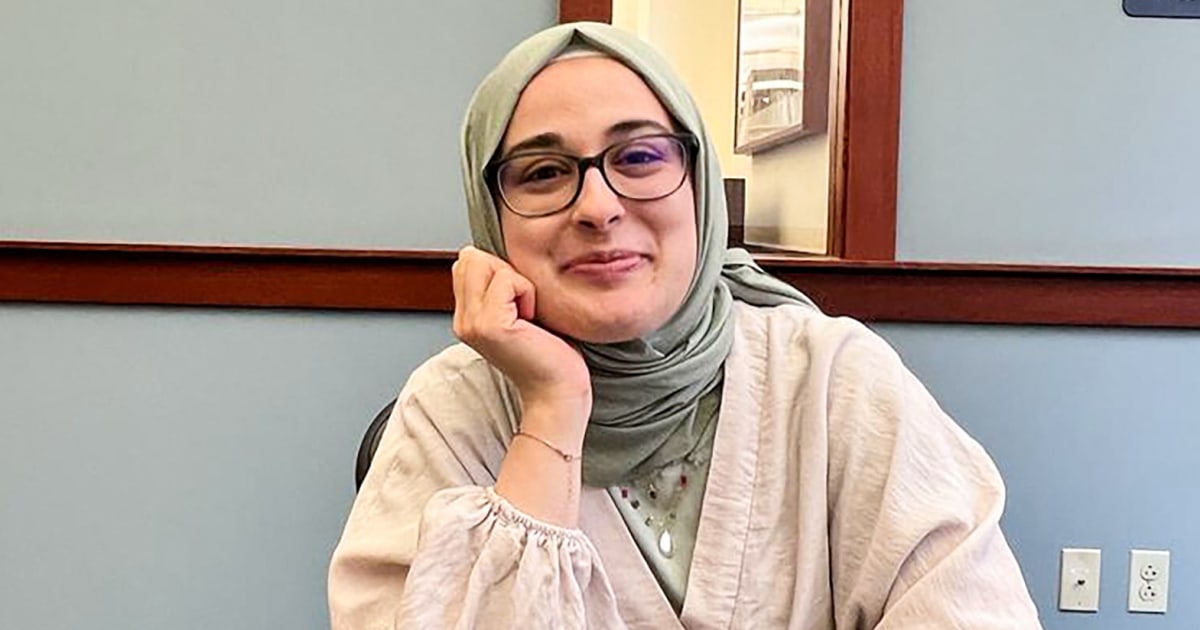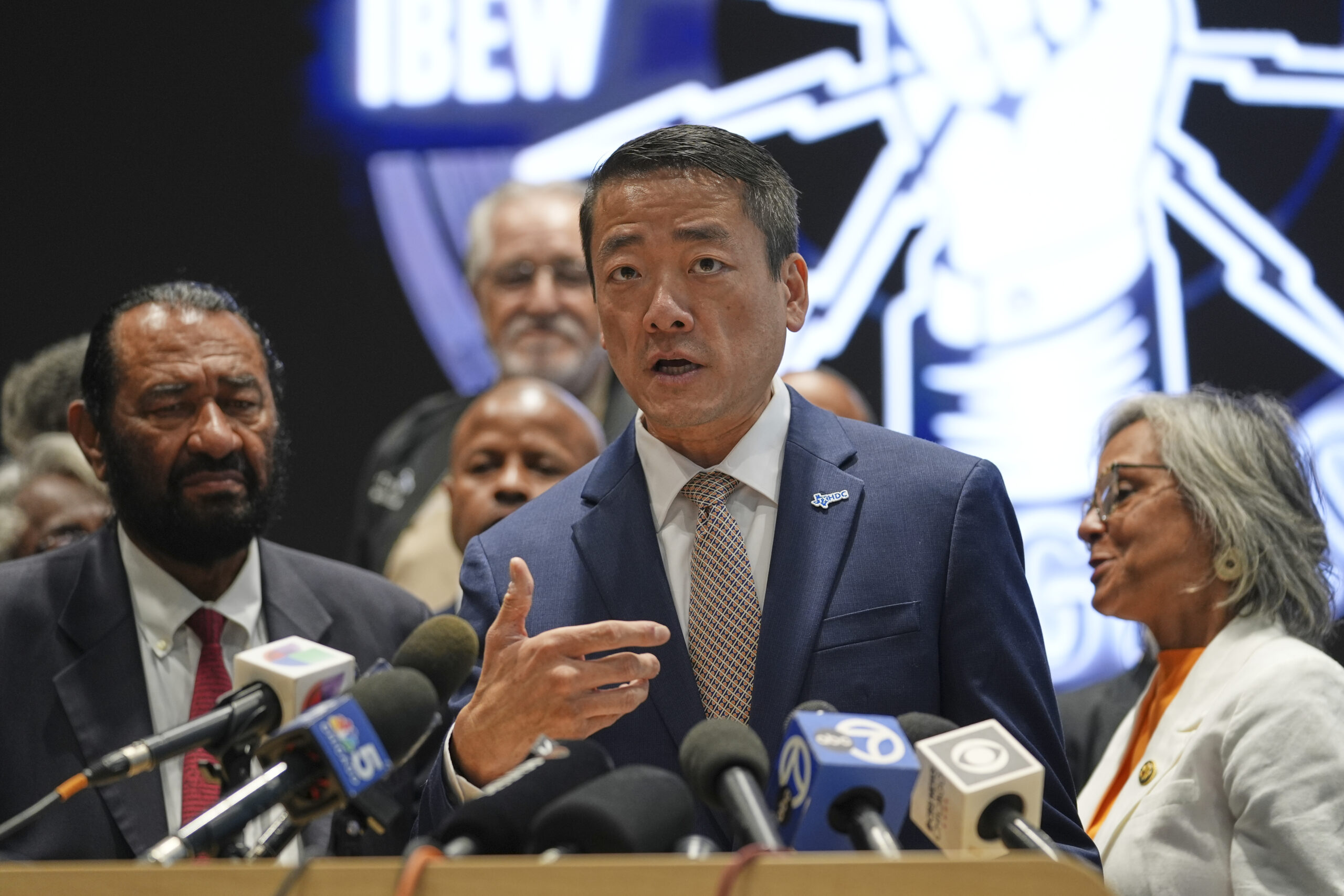
A bombing this weekend at a fertility clinic in California is raising fears that the threat of violence that has long loomed over abortion providers is now extending to other areas of reproductive health.
Authorities said four people were injured when a car bomb exploded outside the American Reproductive Centers clinic in Palm Springs Saturday, and the 25-year-old suspect was killed. The facility was badly damaged in the blast.
Law enforcement officials said the suspect’s writings expressed anti-natalist views, a belief that procreation is morally wrong. They characterized the blast as an act of terrorism and said it was believed to be an isolated incident.
But security experts and women’s health advocates said the violence should serve as a wake-up call for all fertility facilities, especially as reproductive issues — not just abortion — have become increasingly politicized.
Several high-profile fertility clinics across the country declined to comment for this article out of fear that publicly discussing security concerns could draw unnecessary attention or increase their vulnerability to copycat attacks.
Philip Klein, a security consultant and president of Texas-based Klein Investigations, said Monday he was fielding calls from clients at multiple reproductive health sites who have asked for advice following the attack.
“Everybody’s a little bit nervous right now,” he said. “What I am deathly scared about is that we may see this escalate.”
While abortion clinics have faced safety threats for decades, fertility clinics have generally been insulated. But in recent years, particularly since the Supreme Court overturned Roe v. Wade in 2022, in vitro fertilization — an assisted reproductive technology that tens of thousands of patients use to start families every year — has drawn scrutiny, too, with embryos a new target, in part from antiabortion organizations that believe embryos should have the same legal rights as people.
Last year, the Alabama Supreme Court ruled that frozen embryos created through IVF were considered children under state law, a decision that exposed families and clinics to potential criminal charges or damages.
In response, the state’s largest hospital and at least two other providers paused IVF treatments. The issue made national news and became a major talking point in the 2024 presidential election, with Democrats seizing on the potential for more fallout. The state later passed a bill granting immunity, civil and criminal, for providers and patients.
Eric Sean Clay, former president of the International Association for Healthcare Security and Safety, a professional safety guideline organization, said he was confident other fertility clinics would seek to bolster their protections after the attack in California, even if they hadn’t considered extra precautions before.
“When we think of this level of violence, we think about abortion clinics. We don’t think about IVF clinics,” he said. “When they see that there’s a potential vulnerability or threat, they move very quickly to try to address it.”
He advised clinics to take a holistic approach to security: forging relationships with local law enforcement agencies, securing the exteriors of their buildings with buzzer access, installing fences around the facilities, prohibiting overnight parking and ensuring there is adequate lighting in the clinics, among other measures.
Klein said that, aside from increasing security, enforcing basic rules is helpful.
“I know it’s so cliché: If you see something, say something. Have eyes in your building,” he said.
Saturday’s bombing has cast a dark shadow on not just providers but also those who seek out fertility treatments, said Barbara Collura, president and CEO of Resolve, a national infertility advocacy group. She said the violence has added an extra emotional burden that families dealing with infertility already face.
She said in a statement to NBC News that it was “deeply distressing members of our community, many of whom are navigating complex treatment regimens to try to build their families.” Her organization was also contacting clinics to gauge how they plan to ensure the continued safety of patients and the embryos they entrust with their fertility doctors.
While violence at fertility clinics is unusual, attacks on abortion clinics and providers are becoming alarmingly common. Of the more than 1,600 death threats or threats of harm since 1977, nearly 300 occurred in 2023 and 2024, according to the National Abortion Federation, which monitors incidents of harassment against abortion providers.
And those opposed to abortion often take issue with other reproductive rights, too, said Melissa Fowler, chief program officer and head of the security team at the National Abortion Federation.
“We know that opposition to abortion is not just about abortion,” she said, adding that she was worried that other reproductive health sites could face increased threats.
She said IVF clinics could learn from abortion providers who consider security at every stage, from selecting locations for their clinics where patients can walk in without intimidation and harassment to installing bulletproof glass and regularly training employees on how to respond to threats.
“Given this incident and given the environment that we’re in, I think there’s a lot that people can learn from abortion providers, and people should be doing everything they can to think about safety in a proactive way,” she said. “It’s really unfortunate and unacceptable that we even have to have this conversation.”








